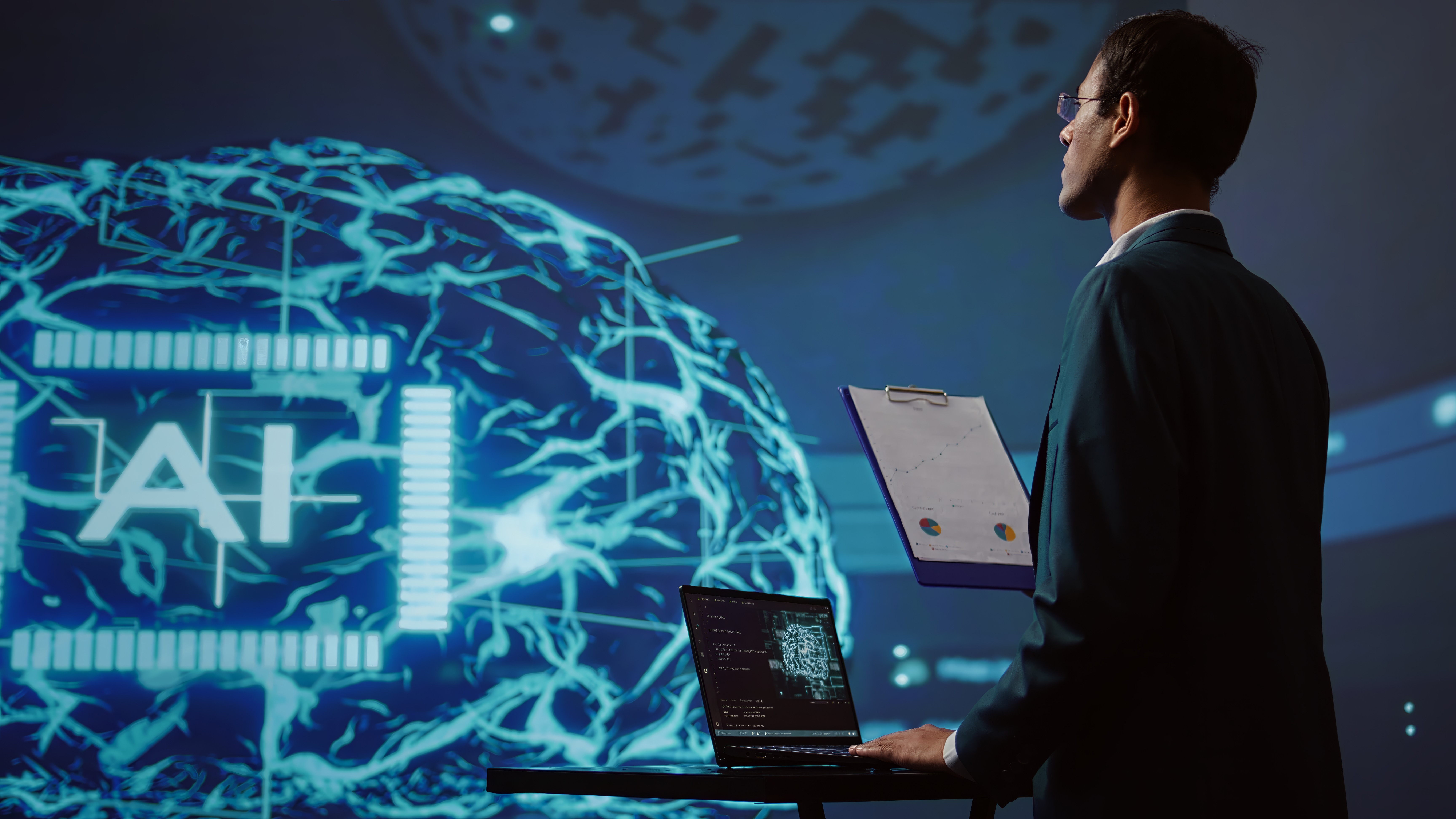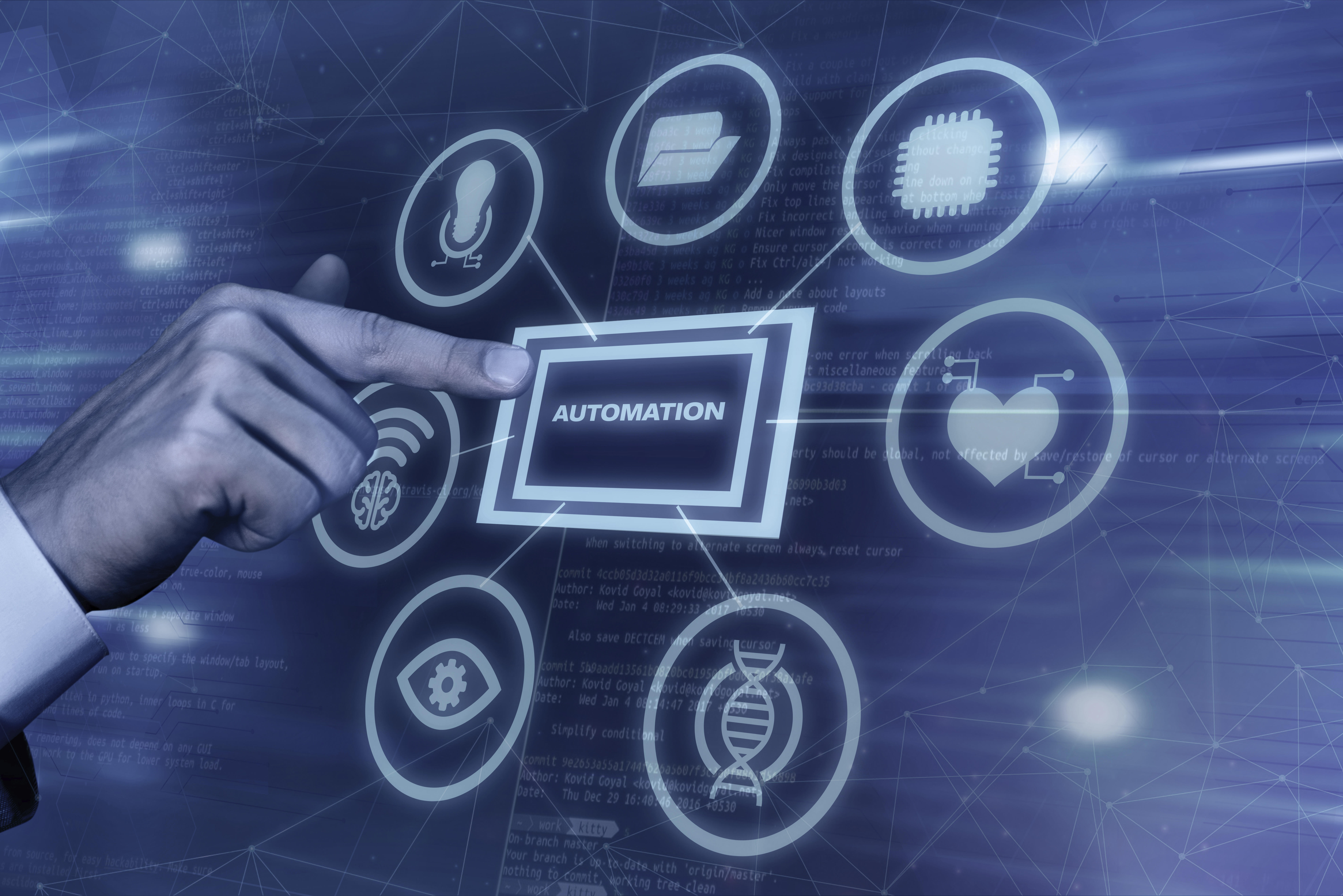Top AI-Enhanced Careers in Leadership Development for the Future
What is Leadership Development?
Leadership development is the process of enhancing an individual’s ability to lead, influence, and drive change within an organization. It involves building key competencies such as strategic thinking, emotional intelligence, communication, and decision-making. Traditionally, leadership development has relied heavily on in-person training sessions, mentoring, and hands-on experiences. However, in today’s fast-evolving business landscape, these methods are no longer sufficient on their own.
Artificial Intelligence (AI) is reshaping leadership development by offering data-driven insights, personalizing training programs, and streamlining talent management. AI-powered platforms can now assess leadership potential, monitor progress in real-time, and provide tailored feedback that helps individuals grow faster and more effectively. For instance, machine learning algorithms can analyse a leader's communication style, collaboration patterns, and decision-making behaviours to offer actionable recommendations for improvement.
How AI is Transforming Leadership Roles and Talent Growth
Moreover, AI tools are enhancing talent development by identifying high-potential employees earlier and matching them with appropriate learning resources and mentors. This not only accelerates leadership readiness but also ensures a better alignment between individual capabilities and organizational needs.
Importance of Preparing for AI-Enhanced Careers in Leadership Development
As AI becomes more embedded in the workplace, the ability to lead in a tech-driven environment is becoming a critical skill. Tomorrow’s leaders will need to understand how to work alongside intelligent systems, make ethical decisions involving AI, and lead diverse, digitally savvy teams. This makes it vital for professionals to adapt and prepare for careers in leadership development that integrate AI literacy and digital agility.
Embracing AI in leadership development is no longer optional—it’s a strategic necessity. Organizations and individuals who invest in AI-enhanced leadership skills today will be better positioned to thrive in the competitive workforce of the future.
What is AI’s Role in Leadership Development?
Artificial Intelligence has brought significant advancements to leadership training, but it’s important to understand both its capabilities and limitations. AI can analyse vast amounts of data to identify patterns in leadership behaviour, recommend personalized learning paths, and simulate real-life scenarios to improve decision-making skills. For example, AI-driven simulations can help leaders practice crisis management or strategic planning in a risk-free environment.
However, AI cannot replace human judgment, emotional intelligence, or ethical reasoning—key traits essential to effective leadership. While it supports data-backed decisions, AI lacks the intuition and empathy that come from lived experience and human interaction. Leaders must learn to balance AI-generated insights with their own critical thinking and interpersonal skills.
Common AI Tools and Technologies Used in Leadership Programs
A variety of AI tools are now embedded in modern leadership development programs. These include natural language processing (NLP) tools that assess communication styles, sentiment analysis tools for understanding team dynamics, and machine learning algorithms that track learning progress over time. Virtual coaches and chatbots provide real-time feedback, while predictive analytics tools help identify future leaders based on performance trends and potential.
Learning management systems (LMS) powered by AI can also personalize content delivery, ensuring each leader receives training tailored to their strengths, weaknesses, and learning preferences.
Benefits of AI Integration in Career Progression and Team Management
Integrating AI into leadership development brings numerous benefits. It helps individuals map clear career paths by identifying skill gaps and suggesting targeted development opportunities. It also enables organizations to manage teams more effectively by understanding individual contributions, collaboration styles, and performance metrics.
As AI continues to evolve, those pursuing careers in leadership development will find it essential to leverage these technologies. Doing so not only enhances personal growth but also empowers teams and organizations to thrive in a digitally transformed world.
What are the Key Skills for AI-Enhanced Careers in Leadership Development?
In an AI-enhanced professional landscape, successful leaders need more than just technical know-how. While AI tools are transforming how decisions are made and teams are managed, the human element remains irreplaceable. Soft skills—such as emotional intelligence, adaptability, and effective communication—are critical in navigating the human side of leadership. These skills help leaders build trust, resolve conflicts, and inspire innovation within diverse teams.
At the same time, technical skills are becoming increasingly important. Leaders must be comfortable with data, understand how AI works in principle, and make informed decisions using insights generated by intelligent systems. The ability to balance empathy with data-driven thinking is key to thriving in this hybrid environment.
Essential Technical Skills: Data Literacy and AI Tools
For modern leaders, data literacy is a foundational skill. It involves the ability to interpret data, understand analytics dashboards, and derive actionable insights. Leaders don’t need to be data scientists, but they should know how to use AI-powered tools like performance analytics platforms, digital collaboration systems, and automated decision-support tools.
Familiarity with technologies such as machine learning, predictive analytics, and natural language processing can also enhance strategic planning and team management. Being able to ask the right questions and evaluate AI-driven recommendations is vital in making informed choices.
Leadership Qualities in an AI-Driven Workplace
AI-driven environments require leaders to be agile, ethically aware, and future-focused. They must be prepared to manage change, foster a culture of continuous learning, and lead hybrid teams where humans and intelligent systems collaborate. Visionary thinking, resilience, and inclusivity are qualities that will define leaders of tomorrow.
To succeed in careers in leadership development, professionals must cultivate both human-cantered and technology-driven skills. This powerful combination ensures leaders can drive innovation while maintaining a strong, people-first approach.
What are the Top Careers in Leadership Development Enhanced by AI?
An AI-powered leadership coach uses intelligent platforms to assess leadership styles, provide real-time feedback, and design personalized development plans. These coaches combine traditional mentoring with data analytics to help professionals grow.
Skills Required: Emotional intelligence, coaching experience, familiarity with AI tools and dashboards.
Growth Prospects: As more organizations adopt digital training, demand for tech-savvy coaches continues to rise.
Organizational Development Analyst
This role focuses on improving organizational performance using data insights. Analysts evaluate company structures, employee engagement, and leadership effectiveness with the help of AI analytics tools.
Skills Required: Data interpretation, change management, strategic planning, and experience with analytics software.
Growth Prospects: High demand in large corporations and consulting firms aiming for transformation through data-driven strategies.
HR Tech Specialist
HR Tech Specialists implement and manage HR systems powered by AI. These platforms handle everything from performance tracking to leadership potential assessment.
Skills Required: Knowledge of HR platforms, AI tools, data privacy, and workforce planning.
Growth Prospects: Rapid growth with HR departments prioritizing digital transformation and AI integration.
AI-Empowered Corporate Trainer
Corporate trainers now use AI to customize training experiences, deliver content at scale, and monitor progress. This role is ideal for educators who embrace technology.
Skills Required: Instructional design, public speaking, LMS platforms, and AI-enhanced training tools.
Growth Prospects: Strong, especially in multinational firms and e-learning providers.
Change Management Leader with AI Tools
These professionals lead organizational shifts, using AI to model scenarios, track change adoption, and predict outcomes.
Skills Required: Change management certification, leadership, data analysis, and experience with predictive modelling tools.
Growth Prospects: Excellent, particularly in tech-forward companies undergoing digital change.
How to Start your Career in Leadership Development with AI?
Educational Pathways and Online Courses
Starting a career in leadership development with AI begins with building a strong educational foundation. While a degree in business, psychology, or human resources is valuable, it’s equally important to gain knowledge of artificial intelligence and data analytics. Specialized programs and certifications can give you an edge.
Online platforms like Learn Artificial Intelligence (LAI) offer courses that combine AI fundamentals with leadership strategies. These include modules on data literacy, AI ethics, decision-making with machine learning, and digital leadership. Such flexible, beginner-friendly courses are ideal for professionals looking to upskill or transition into leadership roles enhanced by AI.
Building Experience Through Internships or Real-World Projects
Practical experience is crucial in this evolving field. Look for internships or volunteer roles that allow you to support leadership development initiatives, especially those using AI tools for assessment, training, or organizational development. Participating in real-world projects—such as helping a small business implement digital leadership programs or assisting with analytics in an HR team—can build your portfolio and confidence.
You can also experiment with AI-powered platforms like leadership assessment tools or learning management systems to understand how they influence decisions and development plans.
Networking and Staying Updated with AI and Leadership Trends
Staying current is key. Join online communities, attend virtual conferences, and follow thought leaders who specialize in AI and leadership. LinkedIn groups, webinars, and newsletters focused on HR tech, organizational development, and AI ethics are excellent resources.
Networking with professionals already working in it will expose you to the latest tools and practices while opening doors to mentorship and job opportunities. The field is changing fast—staying informed ensures you’re always ready for what’s next.
What are the Challenges and Ethical Considerations?
As AI becomes more embedded in leadership development, one of the biggest challenges is finding the right balance between human judgment and machine-generated insights. AI can provide valuable data to inform decisions, but leadership still requires empathy, context-awareness, and moral reasoning—areas where machines fall short. Ensuring effective human-AI collaboration means leaders must learn when to trust AI outputs and when to rely on their own experience and intuition.
Training programs must therefore emphasize not just technical proficiency but also the ability to interpret AI-driven recommendations critically. Leaders must remain the final decision-makers, using AI as a tool—not a replacement.
Data Privacy, Bias, and Fairness in Leadership AI Tools
AI systems used in leadership development often rely on analysing sensitive personal data—such as communication patterns, performance metrics, and psychological profiles. This raises serious questions about privacy, consent, and data security. Organizations must ensure that data collection and analysis are transparent, ethical, and aligned with regulations like GDPR.
Another key concern is algorithmic bias. If leadership AI tools are trained on biased data, they may reinforce existing inequalities—favouring certain communication styles or decision-making behaviours that align with specific demographics. Developers and users must actively work to audit, test, and improve the fairness of these systems to prevent discriminatory outcomes.
Avoiding Over-Reliance on AI in Human-Cantered Decision-Making
While AI can enhance productivity and streamline leadership assessment, there’s a risk of over-reliance. If organizations place too much trust in AI-driven scores or recommendations, they may overlook valuable human qualities that aren’t easily measurable—such as creativity, resilience, or cultural intelligence.
What is the Future Outlook for Careers in Leadership Development?
The future of leadership development is being shaped by rapid technological advancement and the growing influence of AI. This evolution is giving rise to new job titles and hybrid roles that blend leadership, technology, and analytics. Positions such as AI-augmented Leadership Consultant, Digital Transformation Strategist, and Leadership Data Analyst are emerging as organizations seek professionals who can guide teams in tech-integrated environments.
These roles require a unique mix of soft skills and technical acumen, positioning future leaders as both visionaries and digital navigators. Professionals in these hybrid careers must be comfortable leading people while interpreting data, using AI insights, and making informed, ethical decisions.
The Global Demand for AI-Savvy Leadership Professionals
As businesses across the globe adopt AI to optimize performance and decision-making, the demand for leaders who understand how to work effectively with AI is rising sharply. From multinational corporations to start-ups, organizations are searching for individuals who can align leadership strategy with AI capabilities.
This global trend is creating exciting opportunities for those entering, particularly for professionals with international perspectives and cross-functional expertise. The ability to lead distributed, tech-enabled teams is becoming a critical asset in the modern workplace.
Preparing for Lifelong Learning in Leadership and AI
Given the pace of innovation, professionals must adopt a mindset of continuous learning. AI technologies, leadership theories, and workplace dynamics are constantly evolving, making lifelong education essential. Engaging in upskilling through online courses, certifications, and professional networks will help leaders stay relevant.
Success in future leadership development careers will depend on adaptability, curiosity, and the willingness to grow with technology. Those who invest in ongoing learning will not only remain competitive but will also shape the next generation of AI-empowered leadership.
What are the Real-World Examples of AI in Leadership Development Careers?
Case Studies from Companies Using AI for Leadership Growth
Several leading organizations are already leveraging AI to enhance leadership development. For example, IBM uses AI-driven platforms to identify leadership potential and recommend personalized learning paths based on performance data and career goals. By integrating machine learning into its talent development strategy, IBM ensures that leadership growth is data-informed and continuous.
Another notable case is Unilever, which employs AI in its hiring and leadership pipeline by using digital interviews and predictive analytics. This helps identify candidates with high leadership potential early in their careers, enabling focused training and mentorship from the start.
These examples show how large enterprises are embedding AI into leadership frameworks to streamline development, reduce bias, and enhance long-term planning.
Success Stories of Professionals in AI-Enhanced Leadership Roles
Professionals who embrace AI in their leadership journey are seeing tangible career growth. For instance, a leadership coach who adopted AI-driven assessment tools reported being able to serve clients more effectively by offering data-backed feedback and progress tracking. Another professional in a global tech firm transitioned from an HR role to a leadership development strategist by gaining skills in AI tools and analytics.
These individuals demonstrate how integrating technology into leadership practices can elevate one’s impact and open new career paths in a competitive market.
Lessons Learned and Practical Takeaways for Beginners
The key lesson from these examples is that adaptability and openness to technology are essential. Beginners interested in it should focus on building foundational leadership skills while also gaining familiarity with AI tools like talent analytics, virtual coaching platforms, and predictive modelling.
Conclusion
AI is transforming leadership development by providing data-driven insights, personalized training, and enhanced decision-making. It allows leaders to refine their skills, optimize team performance, and predict leadership potential more effectively. As the demand for AI-savvy professionals grows, now is the time to explore careers in leadership development. Embrace AI technologies, develop new skills, and stay ahead in this rapidly evolving field. To begin your journey, check out LAI’s comprehensive courses in AI and leadership development, offering valuable tools and resources for career advancement. Start learning today and take the next step in shaping your future as a leader.








